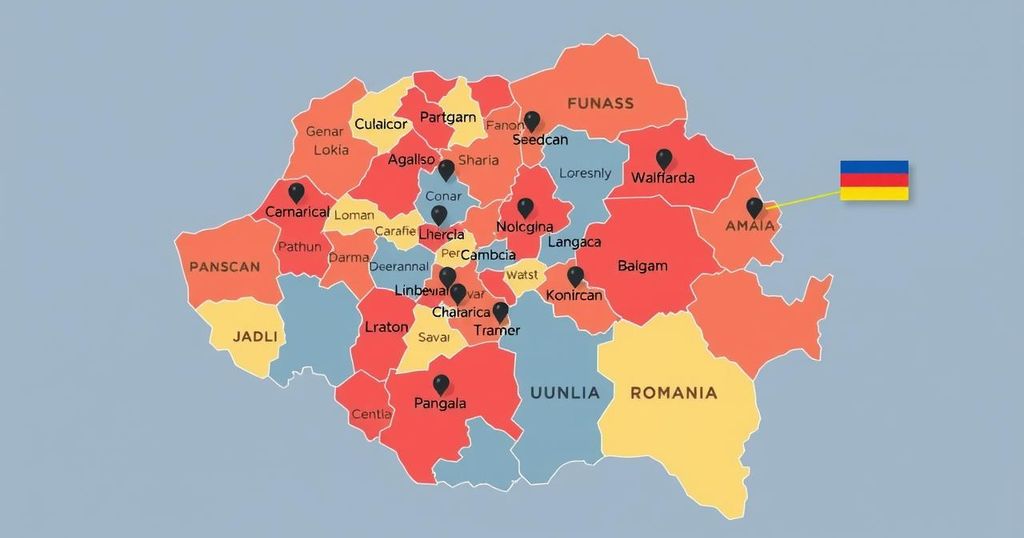Navigating Political Chaos: Romania’s Uncertain Future After Recent Elections

Romania is facing significant political challenges following recent elections that have empowered extreme right-wing figures amid a backdrop of electoral controversy and public mistrust. Coalition negotiations among traditional parties are ongoing, but essential reforms are being sidelined by power struggles. Meanwhile, allegations of a coup attempt and the presidential silence deepen the crisis, leaving Romania’s political future uncertain.
Romania is currently navigating a precarious political landscape marked by recent electoral upheavals following its parliamentary election on December 1 and the controversial annulment of the first round of the presidential election. This turmoil has enabled extreme right-wing candidates, notably Calin Georgescu, to gain significant momentum. Amidst coalition negotiations among traditional parties, efforts to address pressing reforms appear overshadowed by intra-party power struggles and a significant public distrust in the political elite. The emergent political climate has raised concerns not only about domestic governance but also about potential foreign influences, particularly from Russia.
Calin Georgescu, often termed the “TikTok candidate,” entered the political arena with substantial support that many attribute to social media prowess and dubious funding, leading to significant public outcry following the election annulment. The Constitutional Court’s sudden decision to void the election results, despite having initially validated them, has deepened divisions within the populace regarding the integrity of democratic processes—increasing skepticism towards the political establishment. Meanwhile, a pro-European coalition is forming but notably excludes the single pro-reform party, USR, further complicating the potential for substantial political change.
In a startling incident, an alleged coup attempt linked to a supporter of Georgescu has further alarmed citizens, highlighting the volatility of the situation. The handling of security concerns remains murky, particularly following the arrest of Horatiu Potra, who was associated with military exploits abroad. Amidst this chaos, President Klaus Iohannis’ silence has raised concerns regarding presidential leadership during such critical times. Collectively, these developments suggest a convoluted future for Romania, challenging the efficacy of its democratic institutions and the public’s faith in governance.
Romania’s political challenges stem from a legacy of mistrust towards its political leaders, particularly following the fall of communism 35 years ago. The recent electoral chaos has highlighted these issues, with far-right candidates capitalizing on public dissatisfaction and a desire for significant reforms. The annulment of the presidential election raises questions about electoral integrity and signals persistent dysfunction within Romania’s democratic frameworks. Moreover, the intrigue of potential external influences and domestic instability contributes to a climate of uncertainty regarding future governance and policy direction.
In conclusion, Romania stands at a crossroads impacted by electoral turmoil and a lack of public trust in its political apparatus. As right-wing factions gain traction alongside mainstream parties’ attempts to form a coalition, the exclusion of progressive forces raises alarm about the potential for genuine reform. The actions of the Constitutional Court and the allegations of a coup underscore the fragile state of democracy in Romania. Moving forward, the country must reconcile its internal divisions and restore faith in democratic processes to secure a stable and prosperous future.
Original Source: www.dw.com








